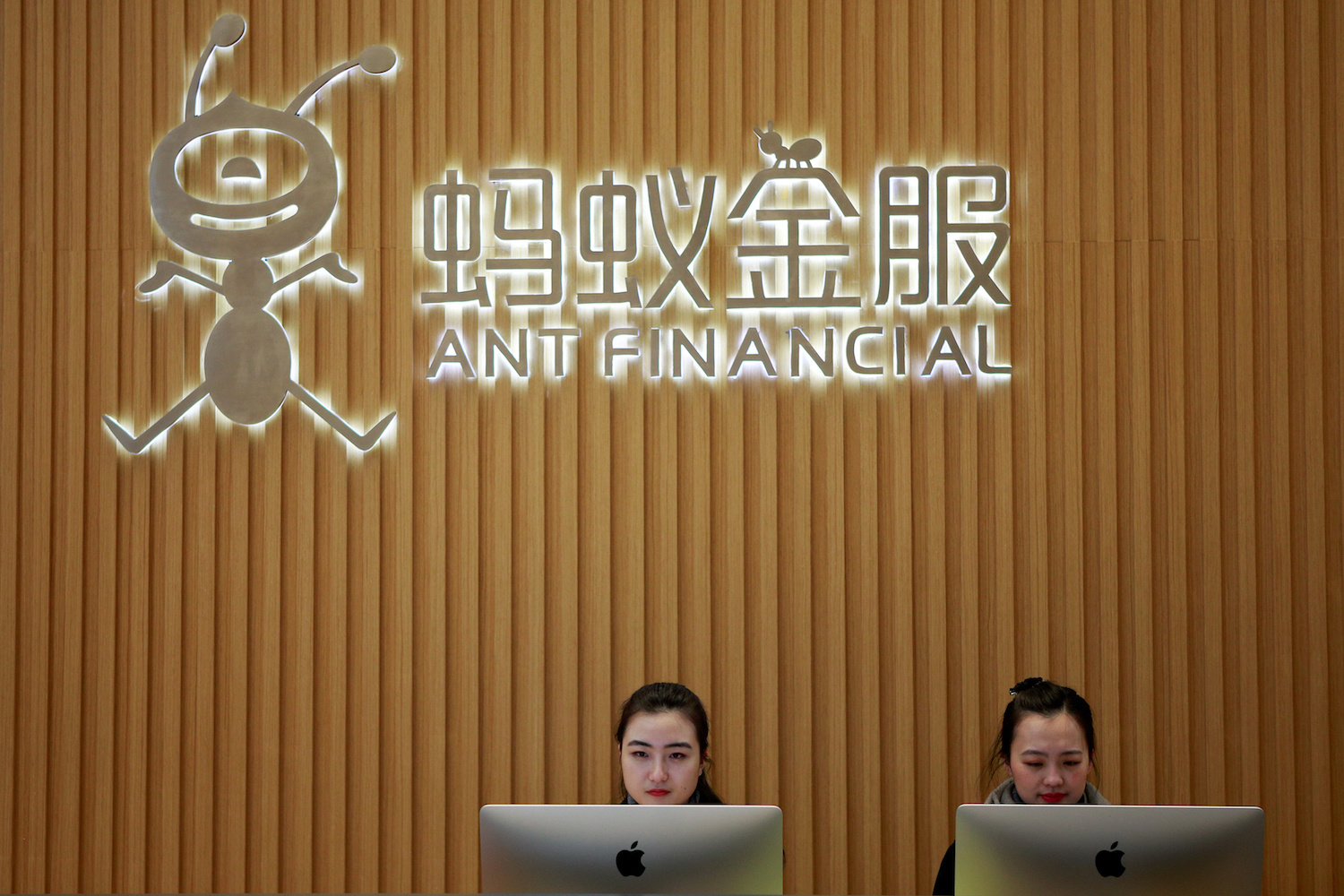(ATF) China’s leading fintech companies such as Ant Group and Tencent have removed app features that allow users to shop around for bank deposits that offer high rates, amid mounting concern from regulators about their services being a risk to China’s financial stability.
This comes after the banking regulator’s clampdown on micro-lending, which led to the suspension of Ant Group’s massive initial public offering early last month. A meeting of the Communist Party of China’s Politburo this month also sent a signal to increase anti-monopoly scrutiny of the internet giants.
The financial services arms of tech giants Ant Group, Tencent , Baidu, JD.com, and Lufax Holding Ltd, which is backed by the Ping An Insurance Group conglomerate, have all removed features that allow consumers to make deposits with smaller brick-and-mortar lenders.
Ant Group’s Alipay removed the online deposit products of several banks from its app last Friday. The move was quickly followed by Baidu’s Du Xiaoman Financial, Tencent Wealth Management, JD Digits, and Lufax, which took down their interest-bearing time deposit products over the weekend.
In a statement, Ant said it voluntarily removed the online deposit products of banks in accordance with recent regulatory requirements for online deposit services, but said the move would not affect people who had already deposited money with banks via Alipay.
Chinese fintech companies have been offering interest-bearing deposit products that mature in three or five years since 2018, when JD Digits launched the first bank deposit product on its platform. These products have typically been offered by smaller regional banks, with fintech companies taking a cut for giving these institutions access to a much wider audience than usual because of geographical constraints.
Fintech innovation
This “fintech innovation” had enabled small private banks, which are only allowed to operate one brick-and-mortar branch, to acquire customers nationwide. It was common to see fintech platforms offering deposit products with private entities such as Yillion Bank in Jilin province, or Blue Ocean Bank in Shandong province, OneBank in Fujian province, and Zhongguancun Bank in Beijing.
These products usually provided higher yields than large state-owned banks. For example, a three-year deposit product on the Alipay platform offered annual interest of 4.125%, while a similar product by the Bank of China only offers 3.85% in interest.
In an educational article published on Alipay’s app, the fintech company said smaller regional lenders were providing higher interest rates to compete for customers with the Big Four state-owned banks, and assured its customers that these deposits were safe because they were guaranteed by China’s Deposit Insurance Fund.
China’s Deposit Insurance Fund, which was set up in 2015 and put into first use by the recent bankruptcy of Baoshang Bank, insures 100% coverage for deposits at a single bank that do not exceed 500,000 yuan (US$76,000).
However, banking officials in Beijing voiced concern about cash being pumped into institutions that could be less stable and were, thus, seen as exploiting the Deposit Insurance Fund.
‘Driving without a licence’
Sun Tianqi, head of the financial stability bureau at the People’s Bank of China, told a forum last week that online financial platforms that carry out such services as were like people “driving without a license” – and they should be included in the scope of financial supervision.
Around 50 banks – mostly small and medium-sized lenders – have offered deposit-absorbing products on 11 platforms with an average balance of 500,000 yuan ($76,000), and nearly half of them require only 50 yuan ($7.60) to start a deposit, according to Sun.
One of the banks only started selling deposit products online in April and had pocketed over 20 billion yuan ($3.1 billion) in deposits in a little over half a year, he noted. Online deposits raised through fintechs accounted for as much as 70% of total deposits for another bank, he added.
“Such products have high returns and low thresholds, and they have become the main means for some small and medium banks to absorb deposits and ease liquidity pressure,” Sun said.
To these lenders, absorbing deposits from consumers has, to some extent, replaced interbank financing. However, consumers were not capable of identifying risks in these financial institutions, Sun noted.
He said the lenders promise of “zero risk” exploited the Deposit Insurance Fund, which has led consumers to choose products simply by their returns rather than a more comprehensive evaluation of the lender’s stability.
Customers had much lower loyalty to these products than traditional bank deposits, and that posed challenges to forewarnings of liquidity risks, he added.
“The reputation risks are also magnified. Once a bank gets negative press that spread on the internet, it can easily cause customers to move their deposits, hence quickly consuming these high-risk banks’ already fragile liquidity,” he said.
Higher financing costs for the real economy
Zeng Gang, deputy director-general of the National Institution for Finance and Development, said some banks avoided self-disciplinary restrictions on deposit rates by partnering with third parties in offering internet-based deposits.
“This will lead to overly fierce competition among banks and a hike in the cost of deposits, which will eventually hinder banks from lowering financing costs for the real economy,” he said.
Zeng believed restricting banks from accumulating deposits via the internet would help banks return to a rational track of development and improve customer loyalty by offering more diversified products that better suit people’s needs.
Seven suggestions
Sun proposed seven regulatory suggestions at the forum last week.
He said regulators should further clarify the qualification of groups wanting to enter the banking sector, then develop specific rules to regulate online deposit products of high-risk banks, improve the risk monitoring and pre-warning mechanisms, and enforce stricter rules to govern fintech services offered over the internet and mobile apps.
He also suggested that authorities improve the rules for the Deposit Insurance Fund to avoid exploitation and prohibit fintech platforms from centralized price comparisons or bidding for deposit products.
“On the premise of controllable financial risks, lower entry threshold, effective competition and steady financial innovations should be encouraged,” he said.
Ma Xiangyun, an analyst from Soochow Securities, expects regulators to restrict small and medium sized banks from absorbing deposits across regions. “Given that the law on commercial banks clearly stipulates that regional banks can only operate within their regions, online deposits will surely be included in the scope of supervision in the future,” he said.
Soochow Securities expects fintech platforms to be able to sell deposit products again after new policies are rolled out, but there may be fewer banks and less attractive offers.
“With heightened regulatory scrutiny over the fintech industry, commercial banks will become more cautious when they team up with the online platforms,” Ma said.
























